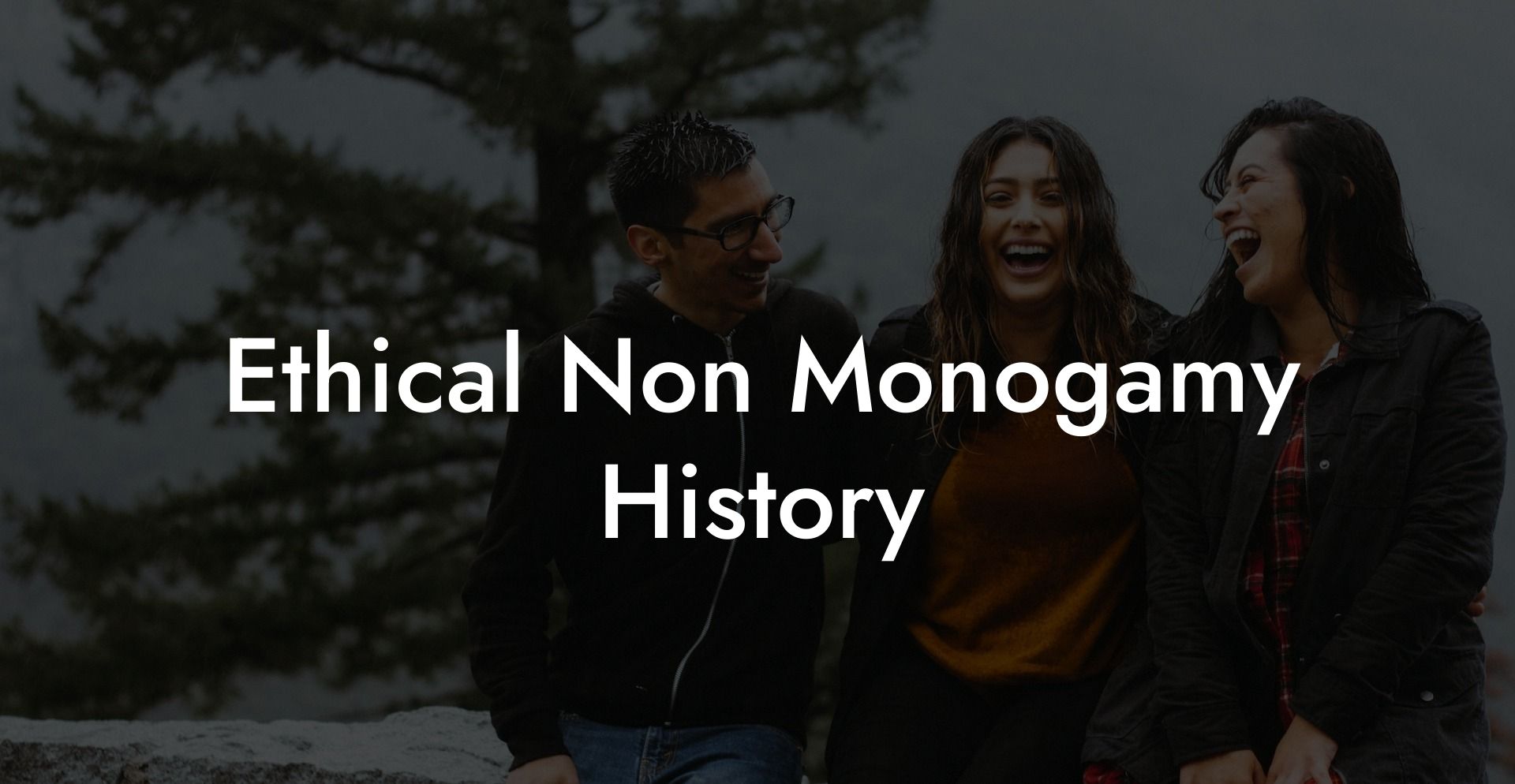Dive into the evolving world of relationships as we take a captivating journey through the history of ethical non-monogamy. Learn how this once-taboo topic has grown in practice and acceptance throughout the ages, and gain insights that can help you navigate the contemporary ethical non-monogamy landscape.
Ethical Non Monogamy History Table of Contents
The Origins of Ethical Non-Monogamy
The Origins of Ethical Non-Monogamy
Contrary to popular belief, ethical non-monogamy isn't a new concept. In fact, some anthropological studies suggest that monogamy wasn't the norm for early humans. Even in societies that practiced monogamy, there has always been a prevalence of non-monogamous relationships.
Ancient Civilizations
- Ancient Egypt: Pharaohs were known to have multiple wives and concubines, but were expected to treat all partners with equal respect and provide for their wellbeing.
- Ancient Rome: Although marriage was a monogamous institution, extramarital affairs were common and often socially accepted, as long as they didn't interfere with the marriage arrangement.
Polygamy in Religious Contexts
Polygamy - specifically, polygyny, where a man has multiple wives - has been practiced in various religious and cultural contexts across history:
- Islam: Muslim men are allowed to have up to four wives, provided that they can treat and support them equally.
- Mormonism (Fundamentalist LDS): Early Mormon leaders practiced polygamy, believing it was a means of securing a higher place in the afterlife.
Changing Attitudes Towards Non-Monogamy
Though some forms of non-monogamy have been practiced throughout history, the idea of ethical non-monogamy - having multiple partners, with everyone involved being aware and consenting - has evolved significantly over the past few centuries.
19th and Early 20th Century
The term "ethical non-monogamy" can be traced back to the 19th century, when social movements such as free love and utopian socialism began to challenge traditional monogamous marriage. During this time, several intentional communities experimented with non-monogamous relationships, such as the Oneida Community in New York and the Amana Colonies in Iowa.
Mid 20th Century
The 1950s and 60s saw an increase in discussions around non-monogamous relationships, with influential figures like psychiatrist R.D. Laing and psychologist Abraham Maslow advocating for more open, emotionally honest types of relationships. The sexual revolution of the 1960s further expanded awareness of non-traditional forms of relationships, such as open marriages.
Late 20th Century to Present
From the 1980s onwards, the non-monogamous community has grown and diversified. The rise of the internet enabled people to connect and share experiences, creating online forums and support networks for those interested in or practicing ethical non-monogamy. In the early 2000s, the concept of polyamory began to gain mainstream recognition, with celebrities like Tilda Swinton and Will Smith openly discussing their non-monogamous relationships.
Modern Ethical Non-Monogamy
Today, ethical non-monogamy has become a recognized relationship orientation, with numerous resources and support networks available to those interested in learning more. Some popular ethical non-monogamous relationship styles include:
- Polyamory: Having multiple loving, committed relationships with the knowledge and consent of all involved.
- Swinging: Participating in recreational sex with other couples or individuals, often within a social setting.
- Open Relationships: Allowing each partner the freedom to explore connections with other people, within agreed-upon boundaries.
Ethical Non Monogamy History Example:
Imagine living in the Oneida Community in the mid-19th century, where members believed in "complex marriage" – all adult members of the community were considered married to each other. They practiced a form of ethical non-monogamy called "stirpiculture," where they selectively bred for specific traits. While this real-life example might seem shocking, it's important to understand how far ethical non-monogamy has come and the different forms it can take.
As we've discovered through this historical exploration of ethical non-monogamy, the concept has gone through significant changes over time. From ancient civilizations to the religious contexts, and ultimately to the more open and contemporary forms, ethical non-monogamy has continuously evolved. By understanding the history, we can approach these unique relationship styles with openness and respect. Be sure to share this fascinating journey with others and explore more enlightening articles on The Monogamy Experiment's blog!













